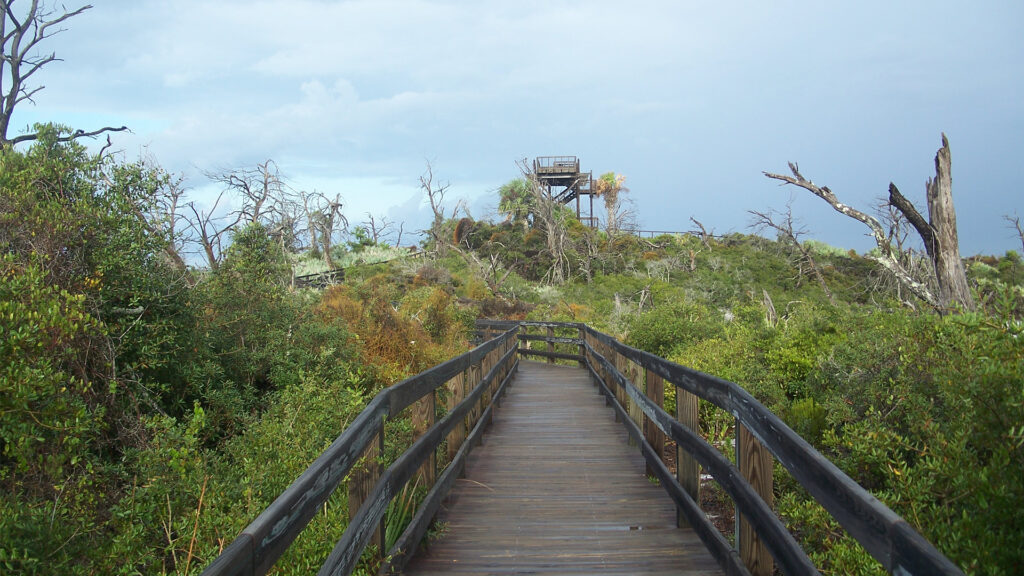By Arielle Perry, FAU Center for Environmental Studies
The Florida Legislature is considering a number of bills in the upcoming 2025 session related to community planning, conservation, transportation, resiliency and more, according to 1000 Friends of Florida, a nonprofit smart-growth advocacy organization.
Group President Paul Owens, Policy Planning Director Kimberleigh Dinkins and Outreach Director Haley Busch discussed the bills during a webinar Wednesday, with less than two weeks before the Florida legislative session starts on March 4.
“We are starting to see fast and furious movement with the bills we’re watching and new ones coming in,” Dinkins said.

One of the most high-profile bills being considered is SB 80/HB 209, the State Parks Preservation Act. The bill comes as a response to the widely controversial plans released last summer to construct golf courses, hotels and pickleball courts in at least nine state parks.
The bill would prohibit the construction of these facilities and only allow for conservation-based recreational activities to be permitted on park grounds. Additionally, the Florida Department of Environmental Protection (DEP) would be required to alert the public at least 30 days before any public hearing about updates to park management plans.
“We welcome this bill, but we think it could be better,” Owens said.
Lawmakers are also weighing bills that would make Florida more resilient to climate change impacts. SB 50/HB 371 would require DEP to adopt rules for nature-based solutions and direct the Florida Flood Hub to develop design guidelines and standards for green and gray infrastructure. SB 62/HB 143 would establish a tax-credit program for owners of green buildings meeting certain Leadership in Energy and Environmental Design (LEED) certifications.
The webinar covered several other bills, along with the governor’s proposed budget and other issues. A PowerPoint presentation and a video of the webinar can be viewed on the 1000 Friends website.
Arielle Perry is a master’s student in the Environmental Science Program at Florida Atlantic University and is a graduate research assistant at FAU’s Center for Environmental Studies. The center manages The Invading Sea. Banner photo: The historic Florida Capitol with the modern Capitol complex in the background (iStock image).
Sign up for The Invading Sea newsletter by visiting here. To support The Invading Sea, click here to make a donation. If you are interested in submitting an opinion piece to The Invading Sea, email Editor Nathan Crabbe at nc*****@*au.edu. To learn more about gray-green infrastructure, watch the video below.



